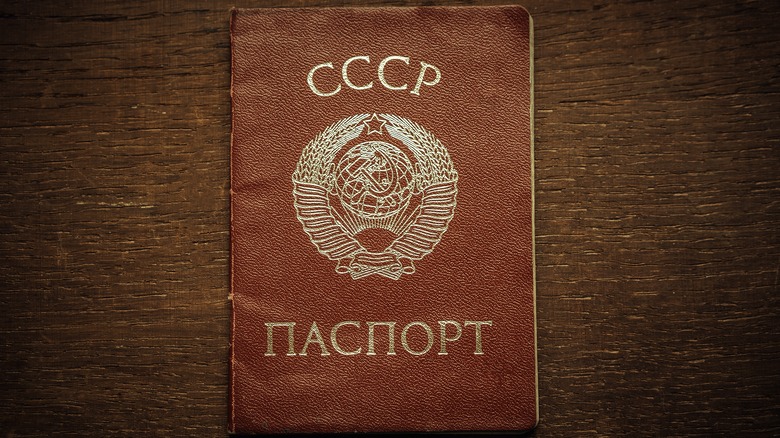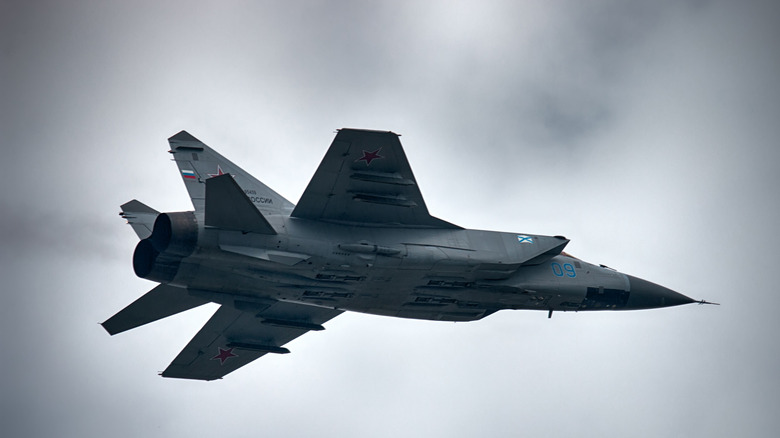What Was The Billion Dollar Spy's Motive To Work For The United States?
In October 1986, after a tribunal, it was announced in the USSR that a quiet and unassuming radar engineer had been executed. His crime was a grievous act of betrayal — he had been passing top-secret information to the west (via The Atlantic). Adolf Tolkachev had done a world of damage to the Soviet military, providing the CIA with extensive intelligence regarding Soviet aviation systems and cruise missile systems over a period of seven years.
Not imbued with a James Bond-like charisma, Tolkachev was a quiet man, who entering his 50s had become increasingly anti-social and withdrawn. Under the surface, Tolkachev was harboring a deep hatred of the regime with which he was hopelessly entwined. In fact, Tolkachev was not "turned" or "recruited" by the U.S. — he sought the CIA out.
One evening in the late 70s, Tolkavhev spotted an American man waiting at a gas station in Moscow and took his chance. After speaking with the man briefly, he left a note in the American's car, asking for a meeting (via the CIA). The man in question turned out to be a local CIA chief, however, initially, this eager volunteer was regarded with a great deal of suspicion. Exceedingly persistent, Tolkachev approached the agent many more times before the CIA finally agreed to work with him.
Something has to be done
What drove Adolf Tolkachev to contact the CIA so doggedly, and at such great risk to his own life? Thanks to heaps of declassified CIA documents we have some understanding of Tolkachev's motives. Although at one point, Tolkachev had been loyal, he began to despair at the regime, stating that the Soviet Union was "enmeshed in such an impassable hypocritical demagogy" (via the CIA).
His contact with the writings of Alexander Solzhenitsyn in particular, also greatly affected Tolkachev's state of mind, pushing him into action. Solzhenitsyn had dared to write about the horrors of life in the Soviet gulags in freezing Siberia, and although he was arrested and forced into exile in 1974, his work influenced many in the USSR (via the BBC).
When explaining his reasoning, Tolkachev wrote: " ... I can only say that a significant role in this was played by Solzhenitsyn and Sakharov, even though I do not know them and have only read Solzhenitsyn's works which were published in Noviy Mir. Some inner worm started to torment me; something has to be done."
Tolkachev may also have been influenced by his wife Natasha, whose family was personally affected by the very things Solzhenitsyn wrote about. Under Joseph Stalin, her mother was arrested and executed, and her father was arrested and imprisoned, leaving the young girl without parents (via the Atlantic).
A stroke of inspiration
They say that "courage calls to courage everywhere," and Tolkachev himself was inspired by another courageous traitor. Initially, when the disgruntled Russian first approached the CIA he mentioned that he wanted to imitate Victor Belenko (via the CIA). Belenko, a celebrated Soviet defector, managed to steal a Mig-25 — which at the time was a top-secret aircraft — and fly it to Japan, handing the plane over to the CIA (via the BBC). In negotiations over pay, Tolkachev also asked for a six-figure sum — requesting he be offered the same amount as the dare-devil pilot. In the end, Tolkachev made millions in today's money (via Russia Beyond).
Sadly, unlike Belenko, Tolkachev did not get away with it, and it is suspected (although it has never been confirmed) that an American defector to the USSR most likely betrayed Tolkachev (via The Atlantic). For those interested in Adolf Tolkachev's incredible story, his life was recently immortalized by Pulitzer Prize-winning journalist David E. Hoffman's 2015 book, "The Billion Dollar Spy" (via Random House).


